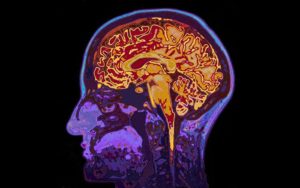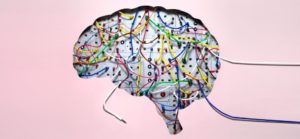Will Meyerhofer, JD LCSW, is an author and a psychotherapist in private practice in NYC. He holds degrees from Harvard, NYU School of Law and The Hunter College School of Social Work. Following law school, he worked as an associate at the BigLaw firm of Sullivan & Cromwell in New York City before becoming a therapist. He is also the creator of the website and blog The Peoples’ Therapist. I spoke with Will about what depression is, how it forms and why so many lawyers are afflicted by it.
Dan: As someone who has suffered from depression and treats people for depression, what is depression and how does it develop?
Will: When Freud was asked why he went into neurology, and medicine, the career which developed, for him, into psychoanalysis, he said he was inspired by Charles Darwin’s astonishing breakthrough with the theory of evolution. Freud was an admirer of Darwin. That’s relevant, because evolution, I believe, plays an important role in depression. Depression is an evolutionary adaptation of humankind gone wrong.
It’s a bit like Sickle Cell Anemia, which is actually an adaptation in our blood intended to prevent Malaria. Unfortunately, that adaptation can also go too far and result in a harmful blood disorder.
Human beings have an enormously long childhood – the period of dependency following birth. That is chiefly due to our single most important adaptation – large brains, which at full size, would never fit through the birth canal. So we are born with a partially developed brain, about a third of its full size. As a result, our brains require a strikingly long period following birth– at least compared to most other higher species – to develop and mature. During that time, we’re utterly helpless. Many species are born, brush themselves off, and a couple of hours or days later, they are up and running around – just think of horses birthing foals. That’s not true for people. Humans take 10-14 years before they’re in any shape to take care of themselves. Our brains don’t even reach their full size until we’re about 6 years old.
Dan: What does this long period of childhood have to do with depression?
Will: We humans experience a very long period in our lives in which we demand and require enormous amounts of care in order to survive. Otherwise, we’d die. Little children comprehend that situation on a cellular level. If you walk away from a little child – make it clear that you are planning to abandon him for any length of time – that little child is going to absolutely flip; he is going to scream so loudly it will peel the paint off the walls. That’s because he knows he could die if he is abandoned. A child will always experience solitude as abandonment. To put it bluntly – the role of a human child is to please. It’s more intense for humans than for other life forms, because we require a lot more care and for a much longer period of time. Reptiles lay eggs and disappear. They might even feed on their own young and not think much of it. But mammals need care – milk from the mother. And of all the mammals, humans need the most care – years and years of it. So humans spend many years learning to please. We grow up with this directive to please – and blame ourselves if we fail at that task. It gets coded into our brains and becomes a trained behavior, an instinct. Keep in mind, the threat of death is real. Historically, as a species, humans display high rates of infanticide. This phenomenon exists in many species. Birds often cull their young and throw hatchlings out of the nest if there is insufficient food. But with humans, because we require so much care in our early years, if things are bad, it would not be uncommon to take a child who is disfavored – perhaps an illegitimate or disabled or otherwise undesirable child – and leave it out in the woods to die or simply abandon it as a street urchin. It is incumbent upon every human child to please so he can receive care and survive.
Ok, so how does this apply to depression? Under stress, humans regress – they fall back instinctively into old, unconscious behaviors acquired during childhood. In our case, that means falling back into the childhood pattern of locating the fault within – feeling that you’ve failed to please and that if you’re not pleasing, you are going to die. So, when you are under stress and things aren’t going well for you, you blame yourself – it must be your fault. Instead of acting like an adult, and getting angry and thinking – I’m not being treated well, I have a right to get angry and advocate for myself, or take care of myself, if no one else is going to do it – instead of that healthy, adult functioning, it’s the old regression, to “I’ve failed. It’s my fault. I’ll die because I’ve failed to please.”
An adult – unlike a child – does not have to experience solitude as abandonment. You can say I am an adult. I am independent. I can take care of myself. Not only that, I can choose an environment that’s healthy for me and I can reassure myself. I can self-sooth, I can self-parent. I can say to myself, hey you are a good person, come on. You choose who you are going to be each day. You are proud of who you are. You make that determination. You make that judgment whether you are worthy of being valued and receiving care each day. And you can tell yourself, Hey cheer up, you are going to get through this. You’re going to surround yourself with people who value you because that’s what you deserve and you are going to take care of yourself. And you can feel angry if you’re not receiving the care you deserve. That – in a nutshell – is how you address depression. You snap out of the regression to behaving like a dependent child and become an adult, a parent for your own child.
Dan: What signs do you look for to diagnose depression?
Will: There are two major indicators for depression that give it away each and every time.
First, I see an absence of appropriate anger. A child does not get angry when the parent fails to provide him with suitable care – the child sees himself as helpless. You can’t get angry at someone if you need them desperately, the way a child needs a parent. It’s not where the hell are you, I need a feeding, my diaper needs to be changed. Instead, the child’s in absolute panic and thinking I’m bad, I’m bad, I’ve failed here, I have failed to please – now they’ll leave me to die. That is the first characteristic of depression – absence of appropriate anger. If I ask a depressed client “Are you angry right now?” I’ll always hear the same answer. It will always be some variation of “I’m only angry at myself.” The rest of that statement would be “. . . because I’ve failed to please and can’t survive on my own.”
The Second indicator of depression is a dismantling of a person’s self-esteem apparatus. There’s no sense of pride in yourself or a sense of value in who you are and what you do. You think I failed, I hate being me. A depressed person will insist, over and over again – “I’m only angry at myself. I don’t like who I am.” That’s because the depressed person’s fantasy is to escape into someone else – someone who will please, and therefore be worthy of care – and survival.
Dan: The absence of appropriate anger and a dismantled self-esteem. I think those are two things that people on the street and even lawyers would associate with lawyers. We expect them to be tough and strong. We expect them to have high self-esteem and take pride in what they do. In your experience, why is the exact opposite true for lawyers struggling with depression?
Will: At a law firm, you are reduced to a child-like helplessness. You have no right to speak your mind, to self-advocate – to stand up to authority. Instead, you go helpless, and try to please. Any anger, if it is acknowledged to any degree, is tightly bottled. You can’t show it. The environment at law firms is uptight, rigid and extremely constrained. You can’t say to the partner – “Oh, for heaven sake, it’s Friday – why are you bothering me with this?” You say – “Yes, sir. I’ll do it right away.” If the partner – who is clearly exploiting you to make money – announces you are going to be working all weekend, you say “Absolutely, no problem.” You do not put up any kind of a fight. Lawyers, especially young lawyers, imagine themselves as helpless as young children in the law firm environment – utterly dependent on the partners, utterly incapable of advocating for themselves, or providing themselves with the care they need on their own. They permit themselves to be abused in an extremely toxic, exploitative environment – they often don’t even seem to realize they’re being abused. They’re too busy attempting to please their abusers.
Dan: Will, you treat a lot of lawyers with depression. Is depression in some way different for lawyers? Are there different causes for their depression?
Will: If I were to design an environment specifically to create depression, I would design a law firm. The reason is that lawyers are pleasers. A lawyer tends to be the kid with the best grades in the class – a generalist whose primary skill is getting good grades – pleasing teachers. If you are really good at math, you become a mathematician or a scientist. If you are particularly skilled on the violin, you become a musician. But if you get an “A” in everything, then your only skill set is getting good grades – and to monetize that skill set, you wind up heading to law school. That’s pretty much how I did it. I got into Harvard and then went on to NYU Law. I wasn’t spectacular at any one thing – I was a generalist. I was also the teacher’s pet. I was an excellent student – but what is an excellent student? It’s someone who gives the teachers what they want. Bill Gates, Mark Zuckerberg, they dropped out of Harvard, they weren’t good students – because they – and others like them – were geniuses, and entrepreneurs, not good students. Lots of geniuses drop out of college – it’s a common feature they share. They’re not pleasers. Einstein struggled to complete the academic rigamarole required to get a teaching post – he was too busy re-inventing physics.
Lawyers tend to be good students. A genius or an entrepreneur – an individualist – says I’m going to do it my own way and the hell with you. Screw Harvard. I don’t need it. This is in contrast to lawyer, the pleaser – the type of person who says I’m going to compete viciously with my peers and get straight A’s at Harvard and then go to a top law school and compete some more to get more straight A’s and then get a job at a top law firm and keep on competing. What happens to a pleaser when you get to these top firms? You do what you are told. And you compete. That’s a very typical lawyer behavior – you are essentially pleasing partners who are replacements for your parents and teachers, what therapists call the idealized parent object, the primary object – the person you’re programmed to please. And you are killing off your peers – the other children who compete for parental attention and care.
Dan: Big firms then have collections of pleasers and demanding partners. What does that do to the psyche of a lawyer?
Will: A law firm takes all these pleasers, herds all these kids who have always gotten A’s, and concentrates them in one giant feeding lot. So you have an entire law firm stocked with pleasers, and no one to please! There are no more teachers. The partners are the closest thing to a parent-object, and they’re overgrown pleasers themselves. It ends up with everyone competing with everyone else and everyone feeling like they’re failing. Throwing people under the bus is not a management technique except in a law firm. Anyone who’s ever worked in big law firms will tell you that folks get thrown under the bus every day at those places. It’s the antithesis of good management. That’s because they’re all competing – no one is stepping back and getting pleased, and saying – hey, you’re doing a terrific job! Good management is a requirement for happiness at a workplace. Everyone seems to realize that but lawyers. Employees need to feel supported, appreciated and motivated. They’ll do better work if they believe they’re good at what they do. Employees need to feel like they want to come in everyday because they like their workplace. Every time you walk in, you need to feel like Yeah, I know everybody here, my boss knows me, he respects me, he thanks me for my work. A good manager understands this – it isn’t rocket science. A fundamental management principle is that a review process needs to be supportive. There should be about 90% praise, and the constructive suggestions should be just that – constructive and suggestions. You don’t get anything remotely resembling that in a law firm because everyone is busy instinctively competing with each other like little baby animals trying to kill off the other baby animals as though they might die if someone else succeeds. Management technique, at a big law firm, amounts to throwing someone else under a bus, and thinking you feel better afterwards – like, somehow you’re now in a safer position. It’s madness.
Dan: Please tell us about your two books.
Will: My first book, Life is a Brief Opportunity for Joy, actually started out as notes for young therapists. I was doing training for volunteer counselors at a hospital and I kept repeating the same things over and over to them, explaining anxiety and depression. So I started with these notes and realized there was a book there that I could use with my clients. That’s one way to look at therapy – as educating your clients – training them, really, to be therapists themselves, to the extent that they gain an understanding of emotions and how they work.
The first part of the book is about gaining awareness and understanding how anxiety and depression work. The second part tackles applying that knowledge to your life as you live it.
It’s interesting, how I came up with the title. I wrote this phrase, somewhere around the middle of the book – “Life is a brief opportunity for joy.” It was a literary agent, later on, who read the book and spotted it and said, that’s your title Will. It seemed to sum up the entire book. Let’s face it: We are all heading to the same place – oblivion – a hole in the ground. It’s a brief trip and it goes by quickly. Our mission is to be joyous. Life is a gift – it really is.
Many many lawyers make themselves incredibly unhappy. I think sometimes it’s as if they’re determined to make themselves miserable. And depression is, at its heart, a self- punitive behavior. You are doing this to yourself. You are beating yourself up. You are being a bad parent to your inner child, by abandoning him to panic and attack himself for failing to please.
Dan: So when someone struggles with depression as an adult, they’re basically repeating the maladaptive patterns they learned in childhood – – but this time they’re doing it to themselves.
Will: Pretty much. You’re not pleasing others, so you blame yourself for that failure. You place the fault within and dismantle your self-esteem. That’s what I did. Instead of saying to myself maybe I don’t belong here, I kidded myself I did belong there. The truth is, I never belonged in the legal profession. I went because of the money and to try to please my mother in some misguided way. I was a writer and a young therapist, at heart. I would have become a therapist if my parents had done a better job handling my coming out as a gay man. I would have gone into mental health right away because I was fascinated by it. But my parents hated that I was gay and sent me to a psychiatrist to be “cured.” That scared me away from mental health, and in the end, I wanted to make my parents happy and provide them all the money and the status to compensate for being gay. I didn’t even understand what law was. I just went into it blindly thinking well, okay, status and money.
Dan: Now, tell us about the second book and why you wrote it?
Will: Well, the second book has a silly title, Way Worse than Being a Dentist: The Lawyer’s Quest for Meaning. I have a literary agent friend who always seems to come up with my titles and she came up with this one, too. We were kidding over coffee and I said, well basically if you’re not smart enough to get into medical school, you have two choices. You can aim a little lower and go to dental school or you can become a lawyer. Weirdly enough, I’ve had people write me who read the book and said,“You know, I went into dentistry and I am glad I did.” Or, “I went law and damn I should have gone into dentistry.”
So that was the idea – you should have been a dentist. There are people who bash dentists and talk about their high rate of suicide or depression. In actuality, I think that’s a myth. The dentists I know are fascinated by it and doing a lot of good for people. I have a bunch of dentist friends.
But anyway, I came up with this silly title and the book was based on a bunch of columns I wrote for Above the Law, along with additional materials that were either too personal or too honest or too long or too – something – to get included in the originally published columns. Every time I wrote a column, I thought of more I wanted to say and I realized I was starting to exorcise my own demons from that very traumatic experience of trying to be a lawyer years before. I dedicated the book to the partners of Sullivan and Cromwell, just for a laugh. The back photo, if you really look at it, is my firm’s facebook photo from my very first day at Sullivan. They took my photo in a suit and tie – I was terrified, but trying to look confident and successful.
Dan: Give us just a few thoughts or ideas about how lawyers can recover from depression.
Will: First of all: Remember who you are. I had a friend at the firm, years ago, a brilliant guy. He went to Yale Law School and then onto Sullivan and Cromwell. I remember him looking at me one day as if he were saying the most forbidden thing he could ever admit: “Will I just don’t think I’m very good at this.” And I remember thinking, God, that’s how I feel. This guy was so accomplished and I thought, My God, they have really torn him down. He has forgotten who he is. I told him “Look at your record. You were a Yale undergrad and then Yale Law” and on and on; top of his class in everything and I said “How did they do this to you?”
How do you remember who you are? There are a couple of things that can help to snap you out of depressive thinking.
One, remember that you are not always right, but you are not always wrong either. It might not be your fault when things don’t go right at work. Depressed people tend to put the entire fault on themselves. Everything is their fault, they failed and they feel they have no right to anger. I always tell my clients “Look, you have the right to have anger, even if you’re just angry that it’s raining outside. Get angry about something.” It’s about dignity. The inherent dignity of being an adult and possessing a right to your own opinion, a right to your anger.
A child doesn’t really get angry. He gets scared and terrified. But an adult can say, hey, maybe this isn’t the right environment for me. I remember someone at Sullivan & Cromwell, at some point, very sadistically telling me, “Maybe you’re not cut out for this place.” At the time I was desperate. I went to my office and wept because I had to be cut out for it. I had to succeed. Then I realized maybe I am not cut out for this. And I remember laughing and then I thought Oh my God, there is a way out. I don’t have to please. I can please myself. I can remember who I actually am.
I pose this question all the time to my lawyer clients: Who are you really, inside? They say “Well, come to think of it, I was an English major, I loved reading, I loved computer games and I always wanted to go bicycling,” or whatever. It starts to come back and they remember who they are: “You know, I love to bake cupcakes and I love to go hiking. I’m mad about punk music from the 70’s.” Whatever floats their boat – their very individual, quirky, personal boat. And then a person starts to come back to who they really are, to their true self. That’s the beginning of the end of depression – simply remembering who you are, giving yourself the dignity to be you – not trying to care for yourself by pleasing others, but doing it directly – by caring for yourself, in the way you need to be cared for, the way the child inside you – who celebrates life and drinks deep of joy – needs to be cared for. That’s how you beat depression.












